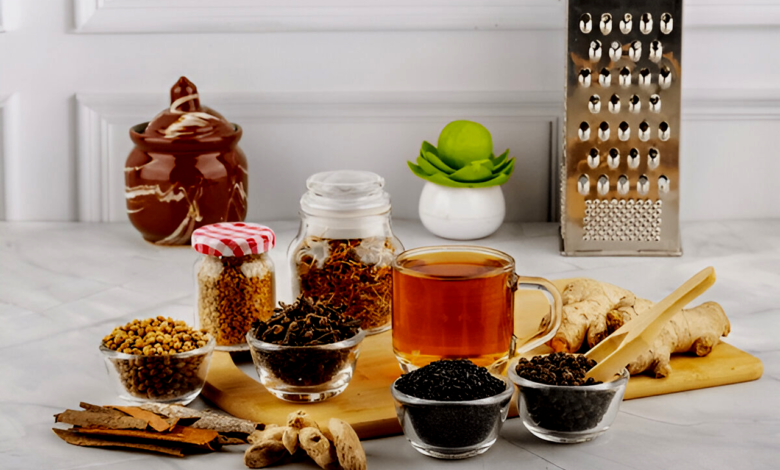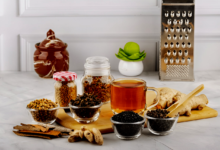Home Remedies for Acne That Actually Work: Dermatologists Approve!
Home remedies for acne that dermatologists approve Discover natural effective solutions to clear breakouts fast. Try these expert-backed tips today.

Struggling with acne can be frustrating, especially when over-the-counter products don’t deliver the results you want. The good news is that several home remedies for acne have been scientifically proven to help clear breakouts and even dermatologists approve of them! From natural antibacterial ingredients like honey and tea tree oil to soothing remedies like aloe vera, these solutions can reduce inflammation, unclog pores, and promote healthier skin without harsh chemicals.
If you’re looking for affordable, effective ways to tackle acne at home, you’re in the right place. We’ve rounded up the best home remedies for acne that are backed by experts and easy to incorporate into your skincare routine. Whether you’re dealing with occasional pimples or persistent breakouts, these natural treatments can help you achieve clearer, smoother skin safely and effectively. Keep reading to discover which remedies dermatologists recommend.
Home Remedies for Acne That Actually Work
Understanding Acne
Before diving into home remedies, it’s essential to understand what causes acne and the different types that exist. Acne occurs when hair follicles become clogged with oil and dead skin cells, leading to the formation of pimples, blackheads, whiteheads, and even cysts. Hormonal changes, stress, diet, and genetics can all contribute to the development of acne. There are several types of acne, including mild acne (blackheads and whiteheads), moderate acne (papules and pustules), and severe acne (nodules and cysts).
Tea Tree Oil
Tea tree oil is one of the most widely recommended home remedies for acne, and for good reason. This essential oil, derived from the leaves of the Melaleuca alternifolia plant, has powerful antibacterial and anti-inflammatory properties. These properties make it effective in killing the bacteria that cause acne while reducing redness and swelling. To use tea tree oil, dilute it with a carrier oil like coconut oil or jojoba oil (typically a 1:9 ratio) and apply it directly to the affected areas using a cotton swab.
Honey
Honey has been used for centuries as a natural remedy for various skin conditions, including acne. Its antibacterial properties help combat acne-causing bacteria, while its anti-inflammatory effects soothe irritated skin. Raw, unprocessed honey is the best option, as it retains all its natural enzymes and nutrients. To use honey as a home remedy for acne, apply a thin layer to your face, leave it on for 10-15 minutes, and then rinse it off with warm water.
Aloe Vera
Aloe vera is another dermatologist-approved home remedy for acne, thanks to its soothing and healing properties. The gel from the aloe vera plant contains salicylic acid, which helps exfoliate the skin and unclog pores. It also has anti-inflammatory and antimicrobial properties that can reduce redness and prevent future breakouts. To use aloe vera, extract the gel from a fresh aloe leaf and apply it directly to your skin. Leave it on for 20-30 minutes before rinsing it off.
Apple Cider Vinegar
Apple cider vinegar (ACV) is a popular home remedy for acne due to its ability to balance the skin’s pH levels and kill bacteria. ACV contains acetic acid, which has been shown to reduce inflammation and prevent the growth of acne-causing bacteria. To use apple cider vinegar, mix one part ACV with three parts water and apply it to your skin using a cotton ball. Leave it on for 5-10 minutes before rinsing it off. It’s important to dilute apple cider vinegar, as its high acidity can cause skin irritation if used undiluted.
Green Tea
Green tea is not only a healthy beverage but also an effective home remedy for acne. It is rich in antioxidants, particularly epigallocatechin gallate (EGCG), which helps reduce inflammation and fight bacteria. Green tea also contains tannins, which can shrink pores and reduce oil production. To use green tea as a home remedy, brew a cup of green tea, let it cool, and apply it to your skin using a cotton ball or spray bottle. You can also mix green tea with other ingredients like honey or aloe vera for added benefits.
Oatmeal
Oatmeal is a gentle exfoliant that can help remove dead skin cells and unclog pores, making it an effective home remedy for acne. It also has anti-inflammatory properties that can soothe irritated skin. To use oatmeal, grind it into a fine powder and mix it with water or honey to form a paste. Apply the paste to your face, gently massaging it in circular motions, and then rinse it off with warm water.
Turmeric
Turmeric is a spice that has been used for centuries in traditional medicine for its anti-inflammatory and antimicrobial properties. Curcumin, the active compound in turmeric, helps reduce inflammation and kill bacteria, making it an effective home remedy for acne. To use turmeric, mix one teaspoon of turmeric powder with water or honey to form a paste. Apply the paste to your face, leave it on for 10-15 minutes, and then rinse it off.
Zinc
Zinc is an essential mineral that plays a crucial role in skin health. It has anti-inflammatory and antimicrobial properties that can help reduce acne and promote healing. Zinc can be taken as a supplement or applied topically as a cream or ointment. Foods rich in zinc, such as pumpkin seeds, chickpeas, and lentils, can also help improve skin health. Dermatologists recommend taking zinc supplements in moderation, as excessive intake can lead to side effects.
Diet and Lifestyle Changes
In addition to topical home remedies, making certain diet and lifestyle changes can also help reduce acne. Eating a balanced diet rich in fruits, vegetables, and whole grains can improve skin health. Avoiding processed foods, sugary snacks, and dairy products can also help reduce acne breakouts. Staying hydrated, getting enough sleep, and managing stress are also important factors in maintaining clear skin. Regular exercise can improve blood circulation and promote healthy skin. By combining these lifestyle changes with effective home remedies, you can achieve clearer, healthier skin.
Read More: Can Virtual Reality Help with Mental Health Treatment?
Conclusion
In conclusion, home remedies for acne can be an effective and natural way to achieve clearer skin. Dermatologists approve of many of these remedies, including tea tree oil, honey, aloe vera, apple cider vinegar, green tea, oatmeal, turmeric, and zinc. These remedies work by reducing inflammation, killing bacteria, and promoting healing. While home remedies can be effective, it’s important to remember that everyone’s skin is different, and what works for one person may not work for another.
If you have severe or persistent acne, it’s always best to consult a dermatologist for personalized treatment options. By incorporating these home remedies into your skincare routine and making healthy lifestyle changes, you can take control of your acne and achieve the clear, healthy skin you’ve always wanted.
FAQs
Can home remedies completely cure acne?
Home remedies can help reduce acne and improve skin health, but they may not completely cure severe acne. For persistent or severe cases, consult a dermatologist.
How long does it take for home remedies to work?
Results vary depending on the individual and the remedy used. Some people may see improvements within a few weeks, while others may take longer.
Are home remedies safe for all skin types?
Most home remedies are safe for all skin types, but it’s important to patch test before using any new treatment to avoid irritation or allergic reactions.
Can I use multiple home remedies at once?
Yes, but it’s best to introduce one remedy at a time to see how your skin reacts. Using too many treatments at once can irritate the skin.
Should I stop using my regular skincare products?
Not necessarily. Many home remedies can be used alongside your regular skincare routine but always monitor your skin’s response and adjust as needed.











